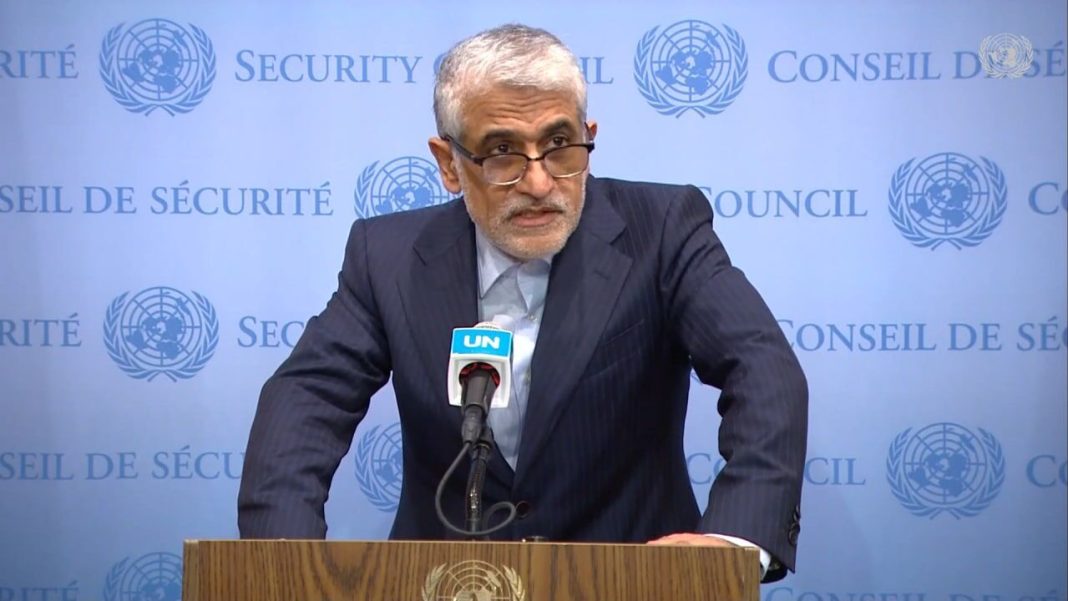Iravani made the remarks in an address to the United Nations Security Council session entitled “Climate Change, Peace and Security” in New York on Tuesday.
“Iran, like other nations, confronts environmental challenges and climate change impacts such as pollution, water scarcity, sand and dust storms, desertification, and biodiversity degradation,” he stated.
“These challenges are worsened by restrictions on accessing foreign goods and services due to unilateral coercive measures imposed by the United States,” he said.
Iravani highlighted that illegal US sanctions impede international funding, hinder renewable energy investments as well as access to environmentally sound technology, and restrict joint environmental research and educational opportunities.
“Consequently, environmental degradation in Iran negatively affects the rights of people to a healthy environment and a decent standard of living,” Iran’s UN envoy pointed out.
The senior Iranian diplomat went on to call for an immediate end to the imposition of sanctions, stating that the unilateral coercive measures act as barriers to the targeted countries’ contributions to “climate change mitigation efforts.”
“Economic, financial, and technological assistance should be provided to countries in need, and relevant platforms such as the General Assembly, the Economic and Social Council, and the UNFCCC (the United Nations Framework Convention on Climate Change) should address these issues appropriately,” Iravani added.
He underlined that the Security Council should refrain from encroaching upon the mandates of other UN bodies, as it lacks the expertise and tools to effectively respond to climate-related security risks.
“Iran firmly opposes the idea of linking climate change to international peace and security and strongly rejects any attempts to politicize technical matters such as climate change,” Iravani underscored.
“Climate change is essentially an issue related to sustainable development rather than a matter of international peace and security,” the Iranian ambassador to the UN said.
Iravani stressed that the issue needs to be addressed and pursued within the appropriate organs of the United Nations, in accordance with their respective mandates.
He stated that developed countries should fulfill their obligations under the UNFCCC and the Paris Agreement, and provide sufficient support, including financial assistance and technology transfer, to developing countries and help them effectively implement their commitments.
Developing countries, within their capabilities and national circumstances, should receive assistance from the international community to overcome obstacles hindering the implementation of their commitments, the Iranian envoy noted.
Iravani stated that the Islamic Republic of Iran, despite pressing challenges, is determined to honor its commitments, and is organizing with UN support the “International Conference on Combating Sand and Dust Storms” to be held between September 9 and 10 in Tehran.
“The conference aims to bring together all affected countries and interested partners to discuss the means and ways to address the key challenges posed by sand and dust storms, and to find the best solutions and mechanisms possible for mitigating global risks and impacts,” he added.
